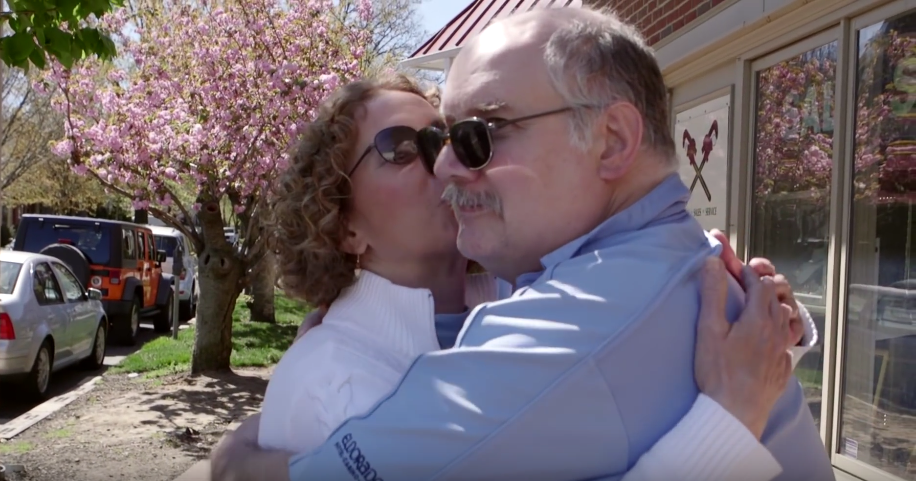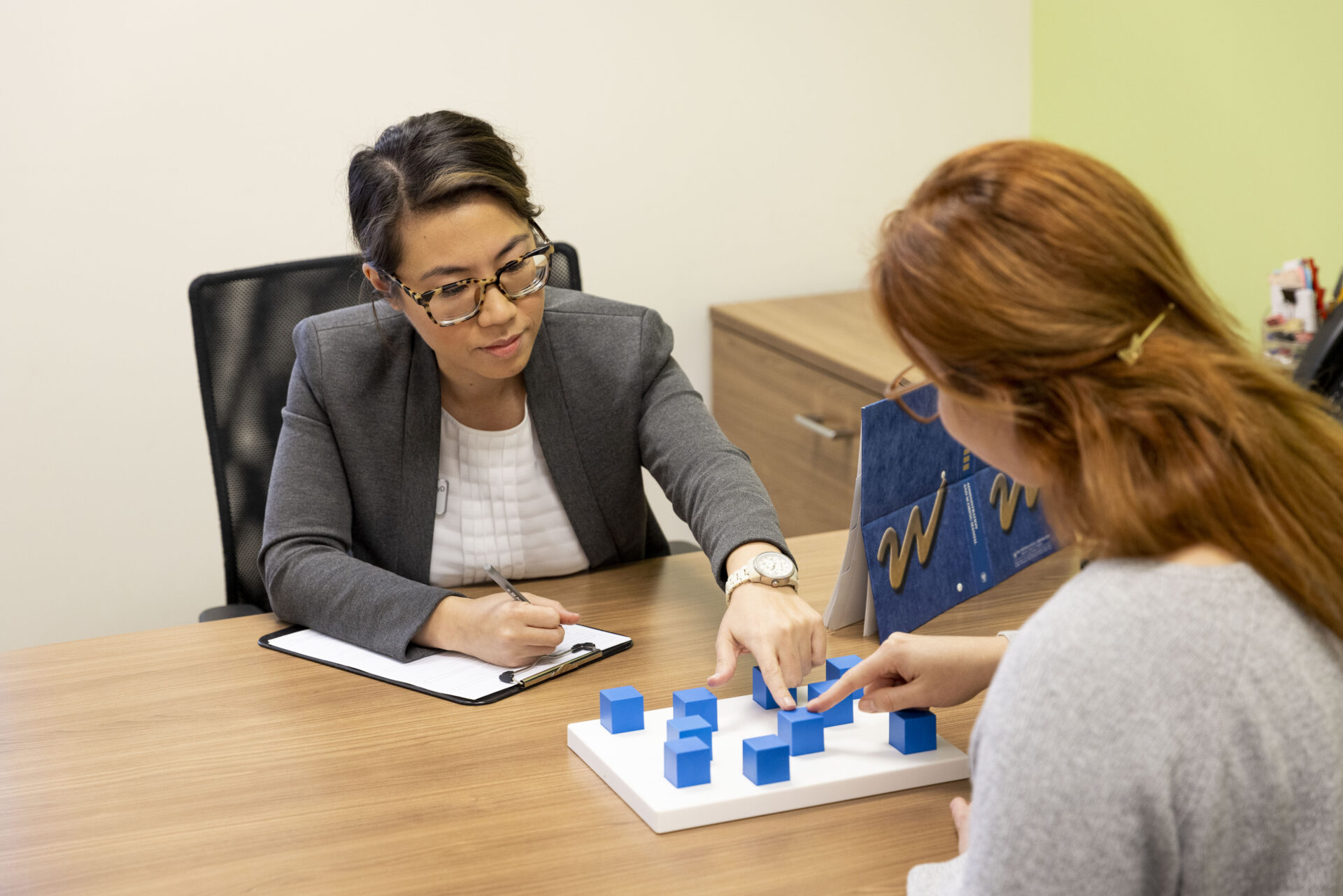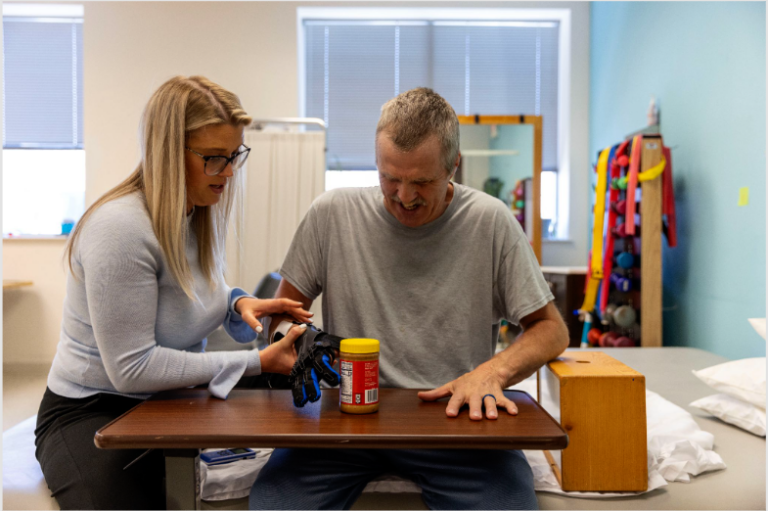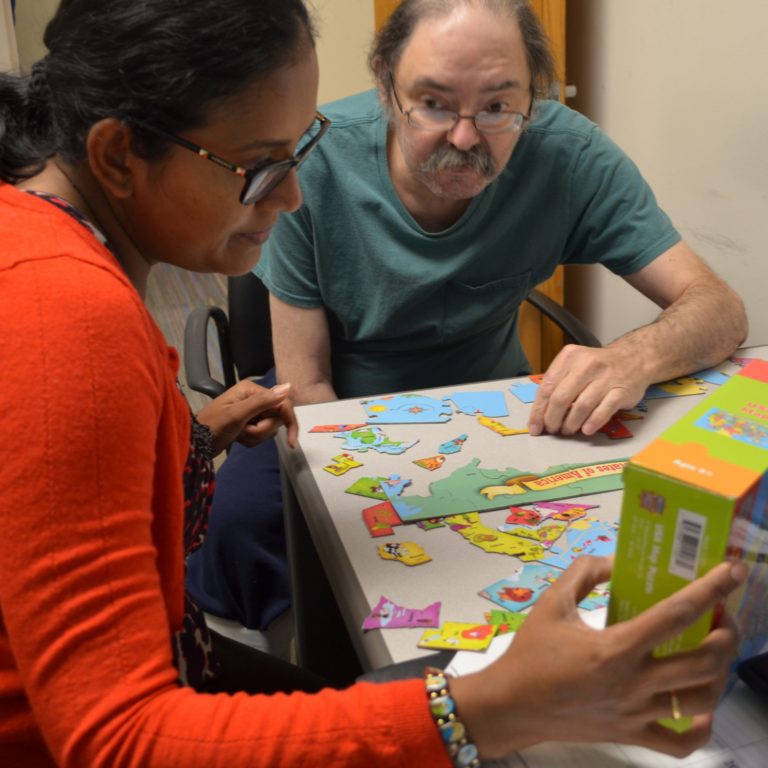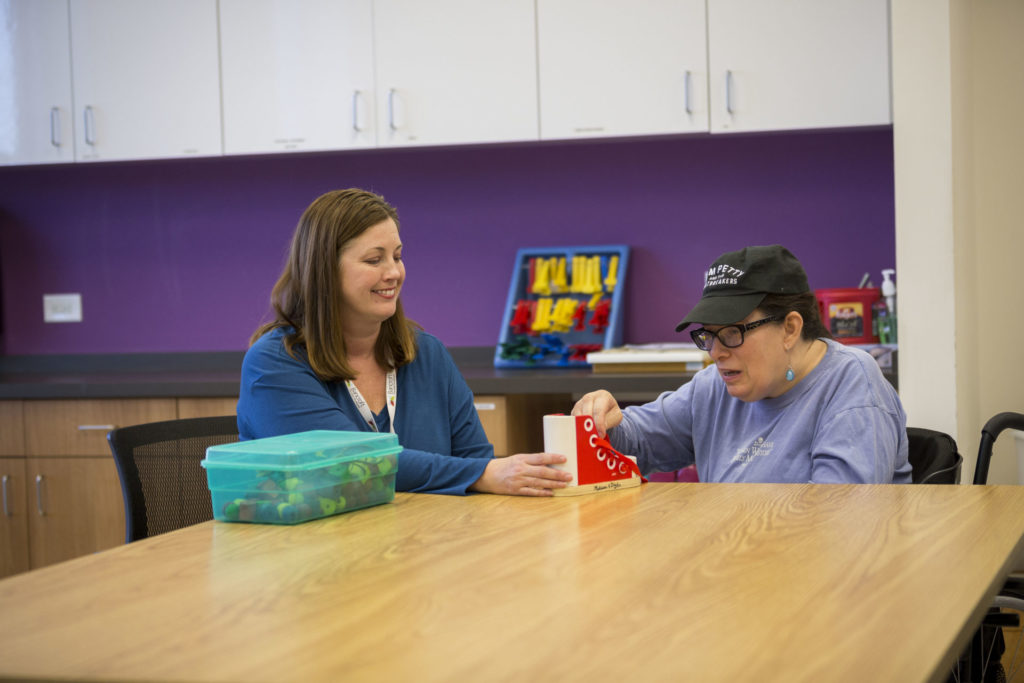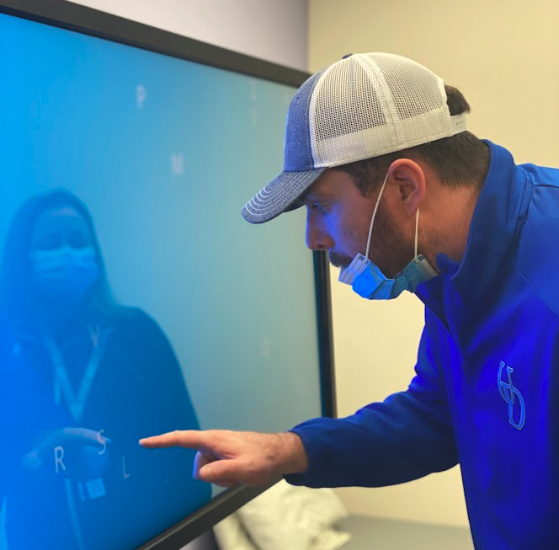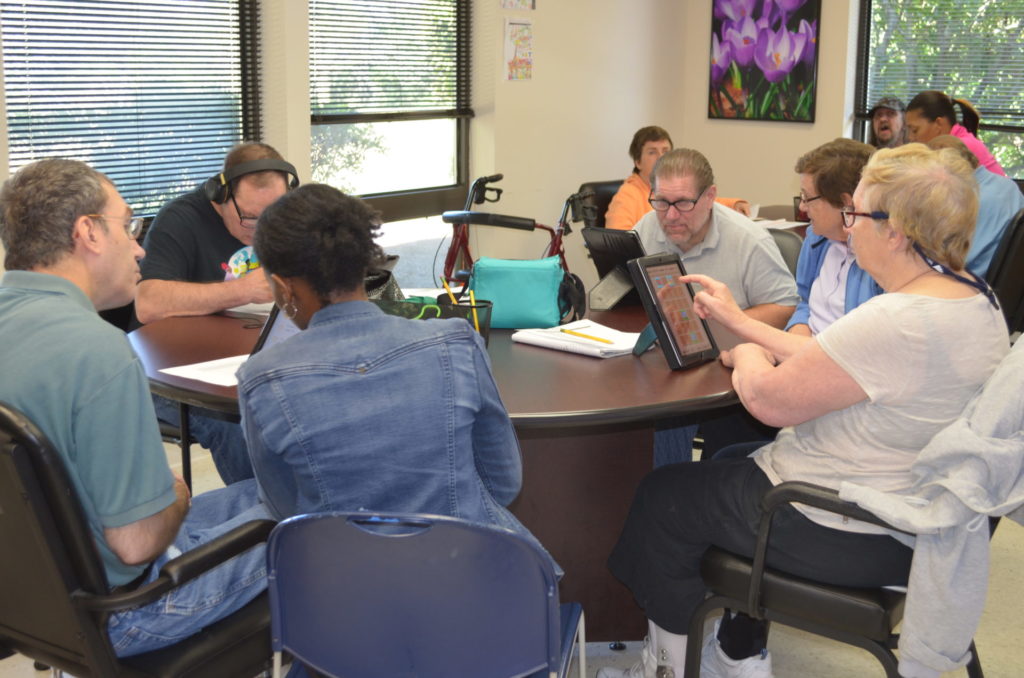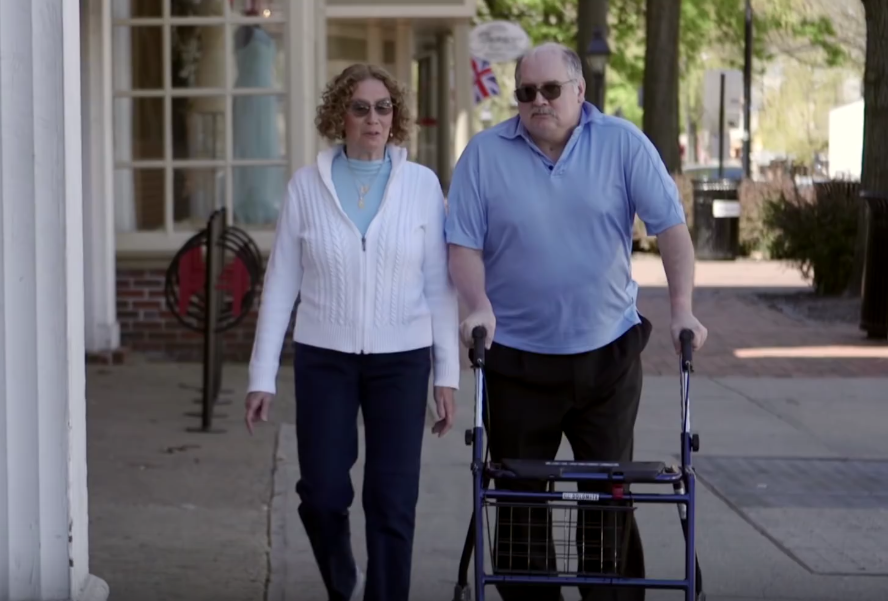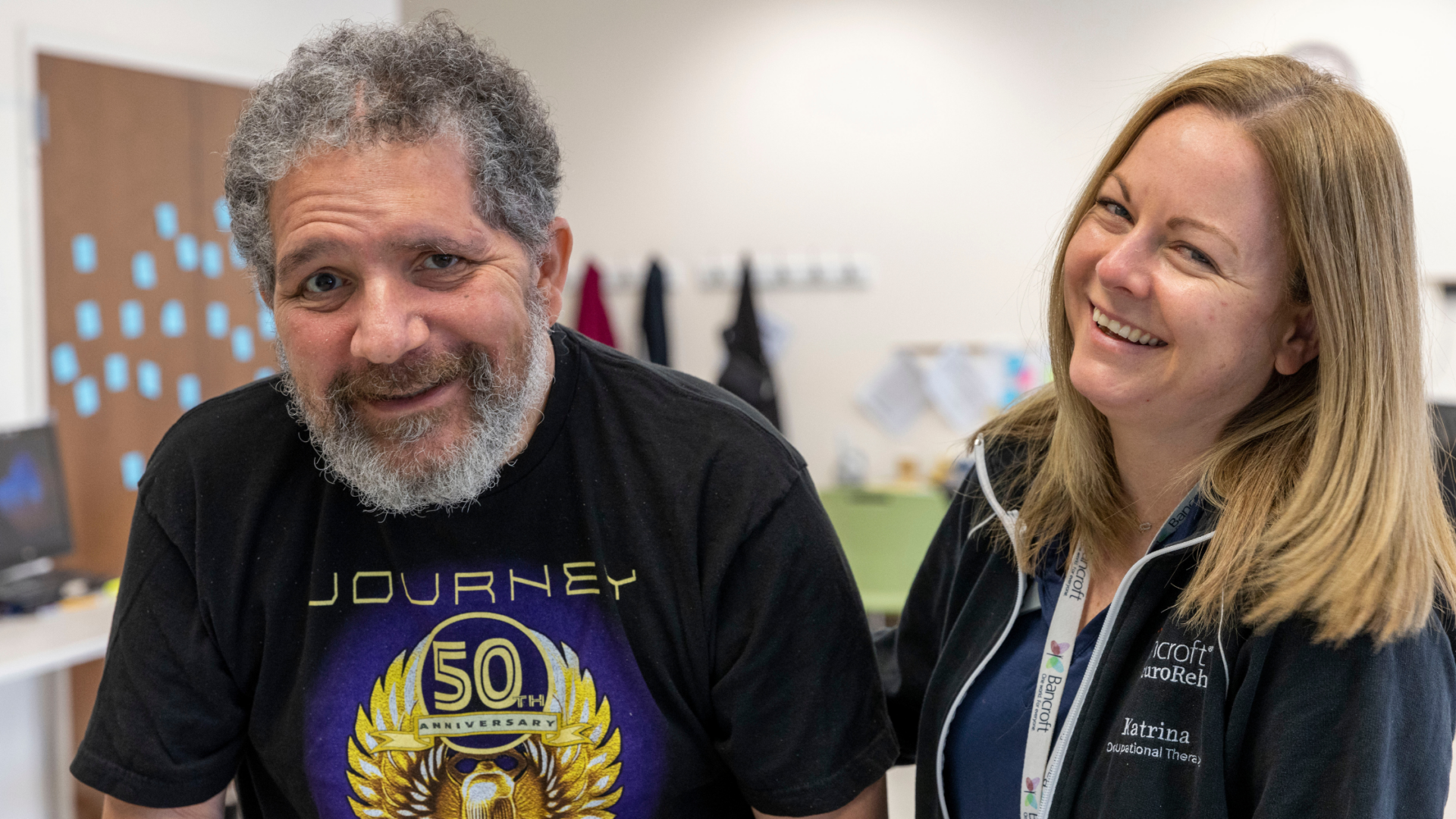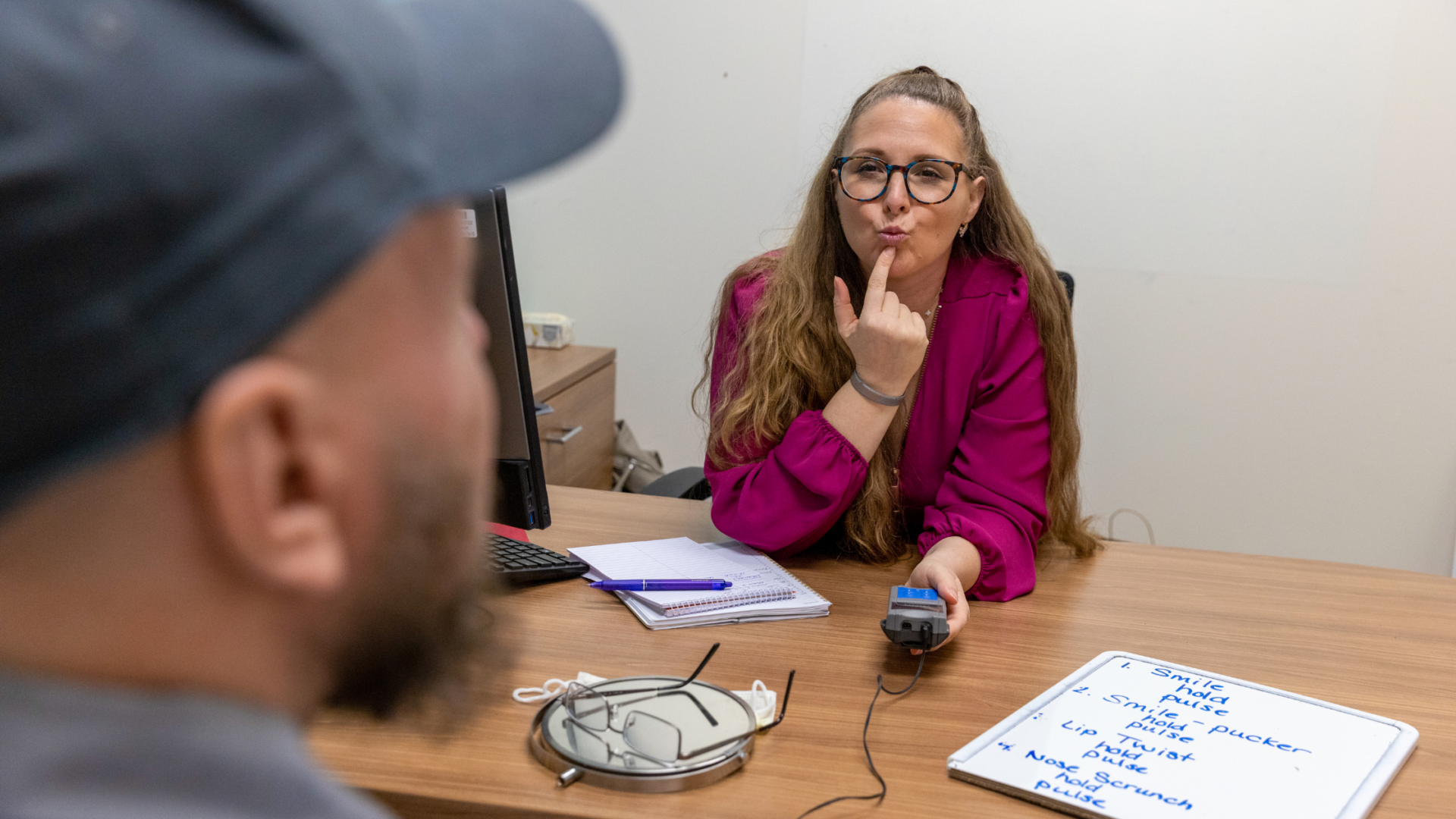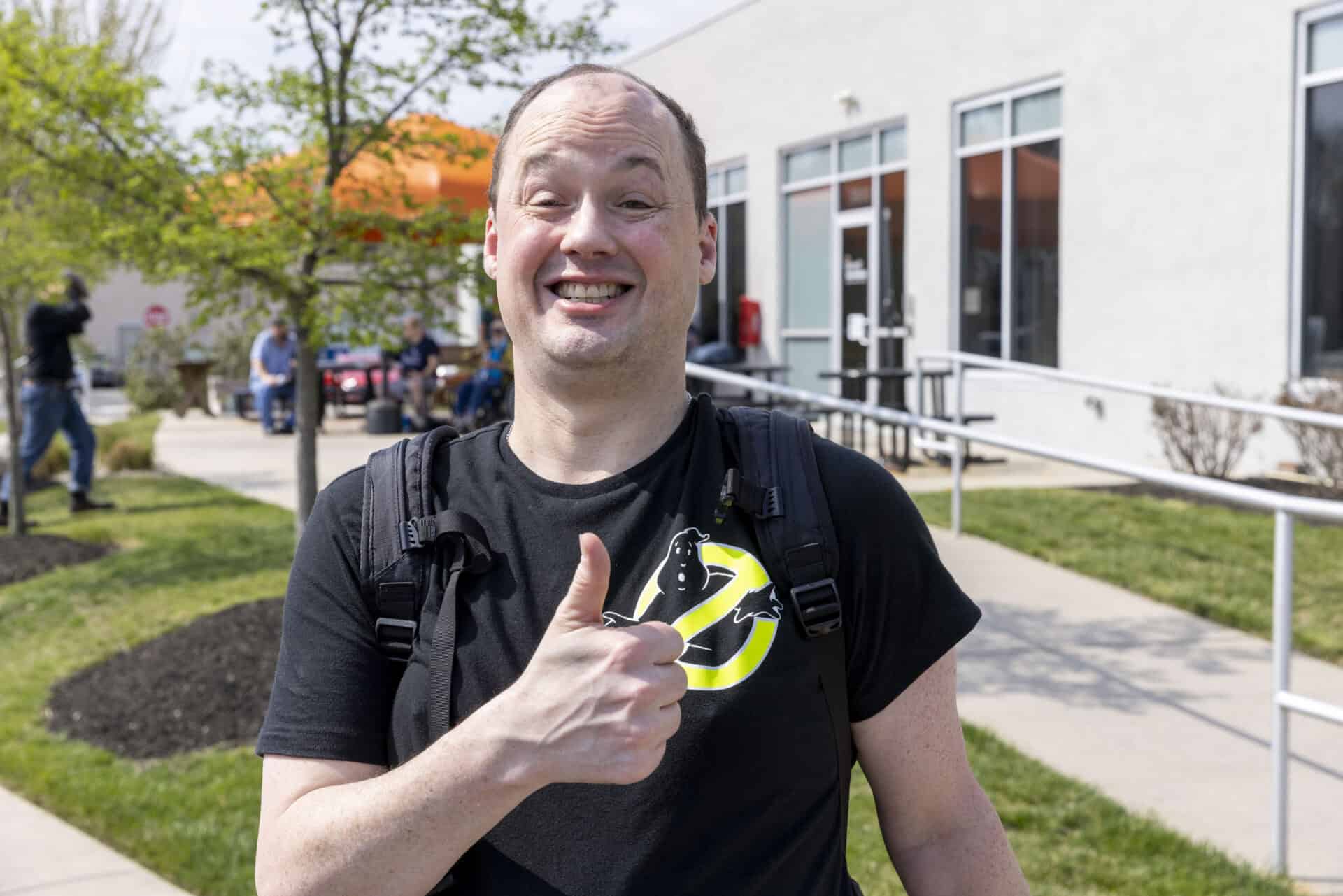Local neuropsychologist explores the monumental impact a brain injury can have on family dynamics and offer best practices to encourage recovery for the patient and the family. Pictured above: Bancroft NeuroRehab patient, Gary and his sister. Watch their story.
Dr. Alison Tverdov, Neuropsychologist at Bancroft NeuroRehab, whose research was recently published in Brain Injury, the research journal of the International Brain Injury Association (IBIA)
Right now, more than five million individuals across the nation are living with the effects of a brain injury. Even more startling – nearly 1.5 million individuals will acquire a new brain injury before the end of the year. While these estimates alone are frightening, consider the many more millions of family members and loved ones left in the wake. March is Brain Injury Awareness Month – the perfect time to open a meaningful dialogue about the devastating effects of a brain injury on family dynamics and social relationships. As a neuropsychologist with one of the premier brain injury treatment facilities in the region, I have both researched and seen the impact of moderate to severe brain injury on family functioning. After a moderate to severe brain injury, an individual may experience physical symptoms such as residual pain and fatigue, and challenges with cognitive abilities such as language, memory, and problem-solving. Caregivers often experience depression, anxiety, somatic symptoms, social isolation, and lower life satisfaction. Furthermore, both the caregiver and the person with brain injury impact each other’s well-being.
Following the injury, family roles and relationships change.
For many family members, they grieve the loss of their loved one’s personality. The behavioral and emotional symptoms are often most difficult to manage and each family member can be impacted differently. Parents of adult children often resume the parental role. Spouses and siblings develop a new caregiving role. About 75 percent of post-brain injury caregivers are women, and more than two-thirds hold a job in addition to caring for a loved one. The pressure to properly rehabilitate a child, parent, or spouse, on top of the individual’s cognitive and emotional challenges, creates the perfect storm for caregiver burnout and an unhealthy family dynamic.
Family needs change across the spectrum of care, from acute treatment to post-acute rehabilitation. These needs include obtaining more information, managing uncertainty about the future, adapting to changes, finding more services or resources, coordinating care, and increasing peer and professional support.
With the right tools and knowledge of healthy recovery, families can improve the quality of life for themselves, and the individual with brain injury.
The following may help a caregiver and his or her family adjust to the “new normal” after a loved one suffers a brain injury:
Become active in support and intervention groups
These groups provide families with tools for education, communication, and problem-solving as well as crisis intervention and caregiver referrals for respite. Caregivers in support groups show declines in distress, lower levels of depression, and greater self-esteem and report fewer trips to their physician for physical and mental illness.
Establish a strong and therapeutic relationship with your loved one’s clinical team
Successful and thorough brain injury treatment requires an interdisciplinary team including a neuropsychologist, medical physician, and physical, occupational, and speech therapists, to name just a few. Establishing open and frequent communication with a patient’s care continuum will reduce caregiver stress and allow a family to focus on strengthening their relationships rather than deciphering complex medical information.
Practice self-care and remain committed to favorite pastimes
It’s easy for a caregiver and his or her family to become consumed with their loved one – caregiving is a tall task and a family will need to navigate many immense changes and obstacles at once. However, family members must continue in activities they enjoyed before a brain injury. Did you have a standing coffee night with a colleague? Book club? Shopping with friends? To the best of your ability, maintain things you love, and don’t neglect your own needs during this period of change and adjustment.
Family dynamics may shift and change as you adjust to a new life post-injury, but patients and their families often discover new ways to enjoy their time together. Go easy on yourself – especially during the first year in a caregiving role – and never be afraid to ask for help and advice from your loved one’s care team.
